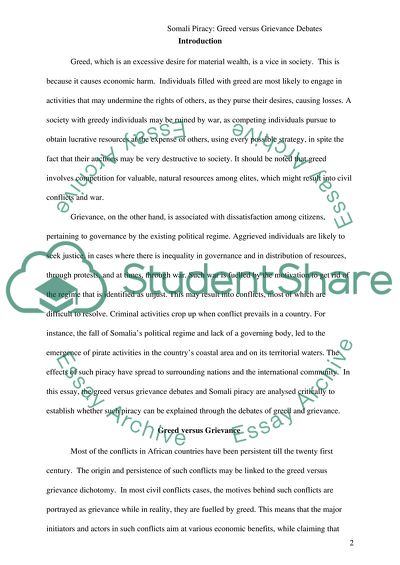Cite this document
(Somali Piracy - Greed versus Grievance Coursework, n.d.)
Somali Piracy - Greed versus Grievance Coursework. Retrieved from https://studentshare.org/social-science/1815245-can-somali-piracy-be-explained-through-the-greed-v-grievance-debates
Somali Piracy - Greed versus Grievance Coursework. Retrieved from https://studentshare.org/social-science/1815245-can-somali-piracy-be-explained-through-the-greed-v-grievance-debates
(Somali Piracy - Greed Versus Grievance Coursework)
Somali Piracy - Greed Versus Grievance Coursework. https://studentshare.org/social-science/1815245-can-somali-piracy-be-explained-through-the-greed-v-grievance-debates.
Somali Piracy - Greed Versus Grievance Coursework. https://studentshare.org/social-science/1815245-can-somali-piracy-be-explained-through-the-greed-v-grievance-debates.
“Somali Piracy - Greed Versus Grievance Coursework”, n.d. https://studentshare.org/social-science/1815245-can-somali-piracy-be-explained-through-the-greed-v-grievance-debates.


